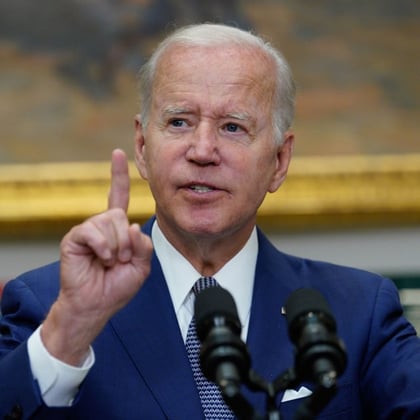What You Need to Know
- The bill strikes down a Labor Department rule allowing retirement plans to weigh climate change and ESG factors.
The Democratic-led U.S. Senate voted to block a Labor Department sustainable investing rule, marking a victory for Republicans in their crusade against “woke” capitalism and teeing up President Joe Biden’s first veto.
The heavily Republican vote was 50-46 to end the Biden administration rule, which would allow retirement plans to weigh climate change and other environmental, social and governance issues in their investment decisions.
Moderate Democrats Jon Tester of Montana and Joe Manchin of West Virginia voted with Republicans to pass the resolution.
The regulation allows retirement plans to consider ESG factors if they are in the best financial interests of plan beneficiaries, reversing a Trump administration rule that required plans to invest solely on financial considerations. Republicans are attacking ESG as an attempt to push climate-change politics into Americans’ financial planning.
Congress has the authority under a 1996 law to overturn federal agency rules on a simple majority vote.
Republicans have condemned the rule, which would make it easier for plan managers to consider ESG elements when they make investments and exercise shareholder rights like proxy voting.
ESG has become a lightning rod for the GOP, as the party turns the investing form into an emblem of left-wing politics. More than a dozen Republican state attorneys general have attacked ESG financial practices, while Republicans in Congress plan to increase their scrutiny of sustainable investing.
Three Democratic senators — John Fetterman of Pennsylvania, Jeff Merkley of Oregon and Dianne Feinstein of California — were absent for the vote, which the Senate was required to hold after House passage Tuesday night.
The bill’s passage marks a rare loss for Biden in the Senate, where Democrats now enjoy a one-seat majority. It also underscores how the politics of ESG will factor into the 2024 congressional and presidential races.
Tester has already announced plans to run for reelection in 2024. Manchin is expected to face a well-funded GOP opponent for his seat if he decides to stand for reelection.
“I’m opposing this Biden administration rule because I believe it undermines retirement accounts for working Montanans and is wrong for my state,” Tester said in a statement.








 March 02, 2023 at 10:14 AM
March 02, 2023 at 10:14 AM












 Copyright © 2024 ALM Global, LLC. All Rights Reserved.
Copyright © 2024 ALM Global, LLC. All Rights Reserved.